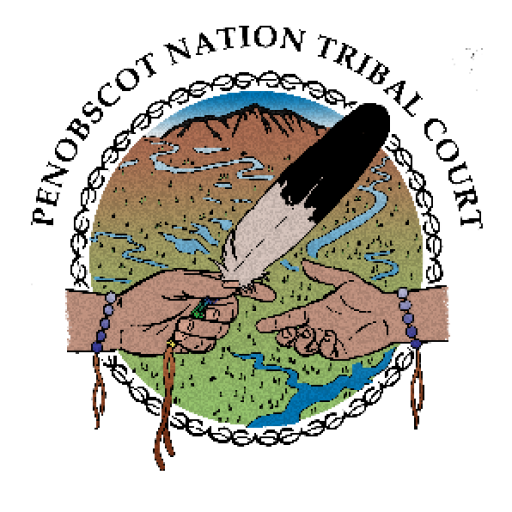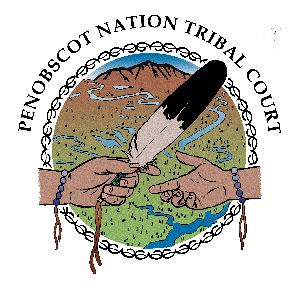Agenda
October 1, 2024
This session will engage a panel of Tribal and State leaders as well as Tribal and State Judges to discuss how we collectively and collaboratively work to assist individuals with substance use disorders to overcome the challenges they face in the different justice systems.
Chief Clarissa Sabattis
Justice Bruce Mallonee
Justice Stephen Nelson
Speaker Rachel Talbot-Ross
This session provides a comprehensive guide (general overview) on how to start a Healing to Wellness Court, offering practical insights and strategies for establishing a successful program. From initial planning stages to implementation and beyond, participants will gain a step-by-step understanding of the key components involved in launching a Healing to Wellness Court, including Needs Assessment and Planning, Program Design and Implementation, and Training and Capacity Building.
Eric Mehnert, Chief Judge, Penobscot Nation
Rhonda Decontie, Magistrate Judge, Penobscot Nation
Reduction Initiative-Utilization of the GAIN Need and Risk Screening Instrument
This session with introduce the BIA/Office of Justice Services’ Pathways to Wellness RRI and outline the intent, utility and practical application of the Global Assessment of Individualized need and risk screening instrument, as customized to fit the needs of Indian Country.
Rod Robinson
Barbara Estrada
A conversation between case managers discussing how to collaborate to provide the best overall experience for the participant through braided services, from sharing information to working together for the participant.
Danielle Carey, LCSW, MHRTc Wabanaki Health and Wellness
Chris King, Case Manager
Heather Murphy, MAT Case Manager
Traditional tactics that work for prosecutors and defense attorneys in criminal courts can lead to poor outcomes in wellness courts. Zach and Matt will discuss the ethical obligations of defense attorneys and prosecutors imposed by bar rules, and how those rules might be applied in wellness courts. They will also discuss how and when to collaborate, and how to proceed in an adversarial fashion in a way that benefits the participants while also promoting healing and wellness. The discussion will also touch on practical instruction on how to navigate entry of participants, sanction hearings, termination hearings, and team meetings.
Zachary Brandmeir, Esq.
Matthew Erickson, Esq.
Step into the heart of Penobscot Nation Healing to Wellness Court and experience a mock team meeting court session that mirrors the actual proceedings. Through an immersive experience, participants will witness the collaborative efforts of tribal leaders, treatment providers, and justice professionals in supporting individuals on their healing journey. Participants will also gain insights into the court’s culturally sensitive practices, trauma-informed care models, and community integration initiatives during this team meeting.
Eric Mehnert, Chief Judge, Penobscot Nation
Rhonda Decontie, Magistrate, Penobscot Nation
Matthew Erickson, Prosecutor
Zachery Brandmeir, Public Defender
Rebecca Winter, Court Administrator
Chris King, Case Manager
Colleen O’Neal, Case Manager
Kylee Francis Fowler, Peer Support Advocate
Michael Augustine, Director of Social Services
Heather Murphy, MAT Case Manager
Brooke Loring, LCPC, CADC, CCS Counseling Coordinator/Clinical Supervisor
Danielle Carey, LCSW, MHRTc Wabanaki Health and Wellness
Marie Mitchell, Penobscot Elder
Candi Ewer, Director of Education and Career Services
Patricia Graffam, MAT Prevention Coordinator
Gabriel Paul, Language Instruction Cultural & Historic Preservation Department
Elisha Sockbeson, Assistant Director of Social Services
A multi-talented artist and dramatic performer known as Firefly, Jason Brown is a member of the Penobscot Indian Nation, one of five traditionally-allied Wabanaki tribal nations in the Atlantic Northeast. He grew up on Panawamskek (Indian Island), a village in the Penobscot River, which runs through his ancestral homeland in central Maine. Firefly shares traditional and futuristic songs, dazzling visuals and interacts with students and audiences inviting them on stage to perform traditional instruments as well as popular call-and-response singing and the sharing of traditional Indigenous dances.
October 2, 2024
Various representatives discuss the incorporation of culture in the Healing to Wellness court model and how it has facilitated success and healing.
Rhonda Decontie, Magistrate, Penobscot Nation
Kylee Francis Fowler, Peer Support Advocate
Gabriel Paul, Language Instruction Cultural & Historic Preservation Department
Step into the heart of Penobscot Nation Healing to Wellness Court and experience a mock court session that mirrors the actual proceedings. Witness the transformative power of restorative justice as participants engage in a simulated court hearing, highlighting the holistic approach, collaborative decision-making, and support network that defines this court model.
Eric Mehnert, Chief Judge, Penobscot Nation
Rhonda Decontie, Magistrate, Penobscot Nation
Matthew Erickson, Prosecutor
Zachery Brandmeir, Public Defender
Rebecca Winter, Court Administrator
Chris King, Case Manager
Colleen O’Neal, Case Manager
Kylee Francis Fowler, Peer Support Advocate
Michael Augustine, Director of Social Services
Heather Murphy, MAT Case Manager
Brooke Loring, LCPC, CADC, CCS Counseling Coordinator/Clinical Supervisor
Danielle Carey, LCSW, MHRTc Wabanaki Health and Wellness
Marie Mitchell, Penobscot Elder
Candi Ewer, Director of Career Services
Patricia Graffam, MAT Prevention Coordinator
Gabriel Paul, Language Instruction Cultural & Historic Preservation Department
Elisha Sockbeson, Assistant Director of Social Services
Lunch provided by Penobscot Nation.
This conversation will discuss the timing and appropriate use of incentives and sanctions in wellness court.
The panel features inspiring individuals who have successfully graduated from Healing to Wellness Courts. Through their personal stories of resilience, participants will witness the transformative power of these courts and gain valuable insights into the experiences, challenges, and triumphs of program participants.
Moderator: Kylee Francis Fowler, Peer Support Advocate
Learn how different funding opportunities work in tandem to create a successful Healing to Wellness Court. Gain insights into grant opportunities, partnerships with State and Federal agencies, and leveraging existing resources within your community. Explore long-term sustainability considerations, including data collection and evaluation, program monitoring, and the importance of demonstrating positive outcomes to ensure ongoing support.
Eric Mehnert, Chief Judge
Rebecca Winter, Court Administrator

